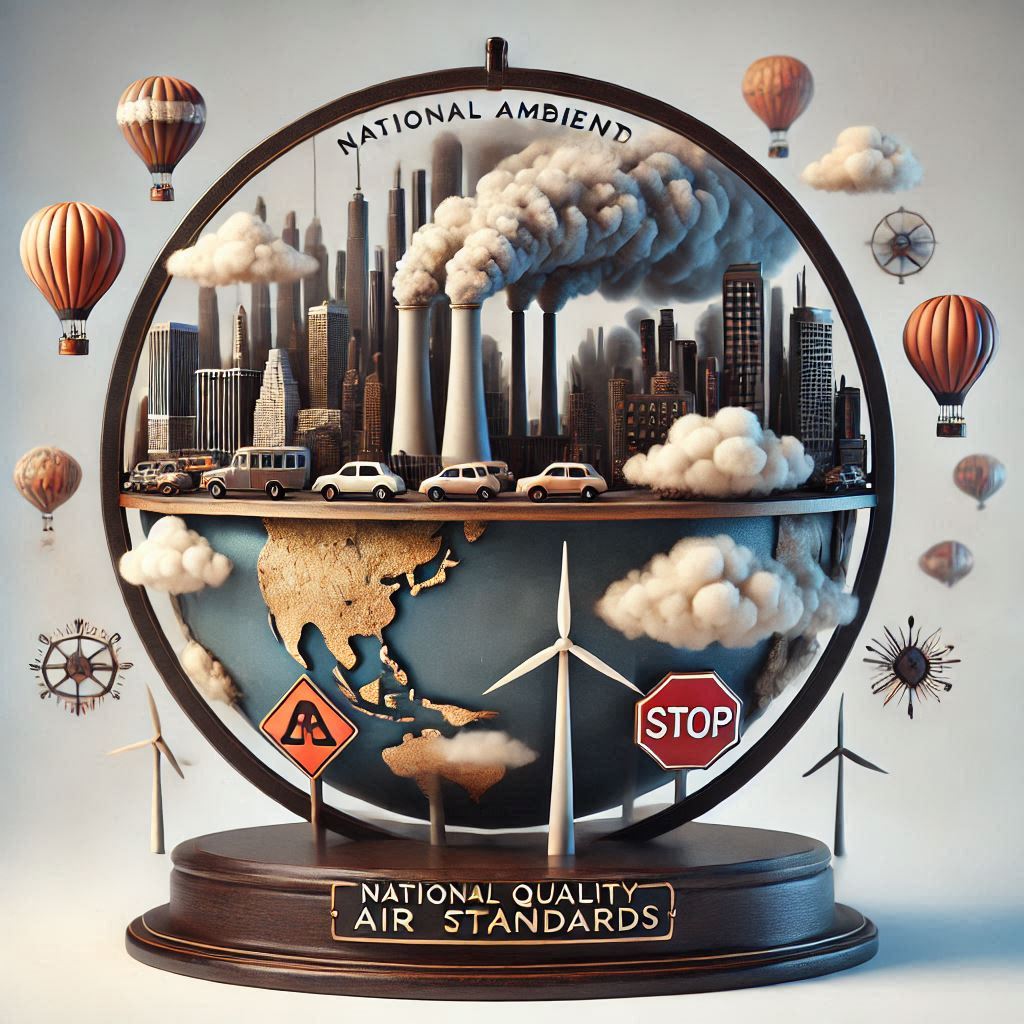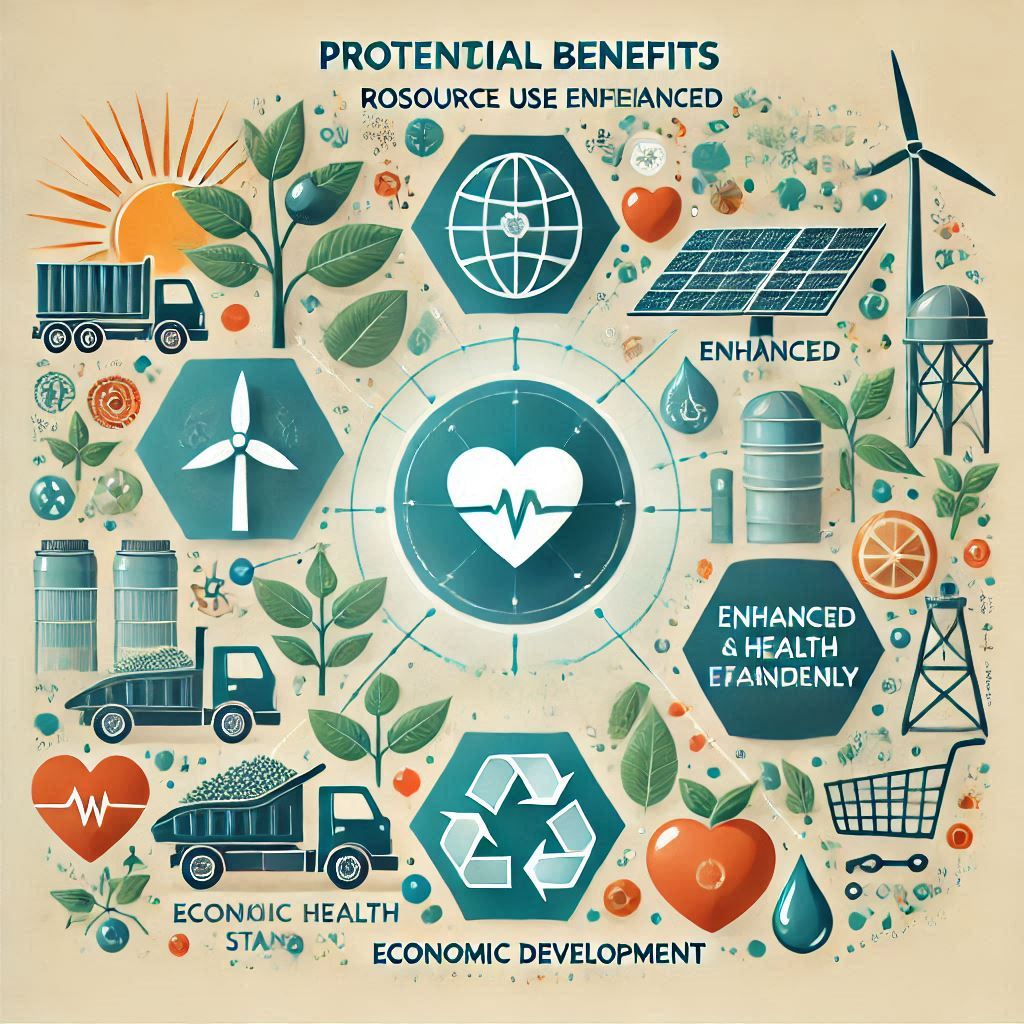The Environmental Regulations are major factor that should be achieved to provide protection to the earth and the sustainable development. In matters touching on air quality standard, environmental laws or the execution of laws these are crucial assays for harmonizing between economy and ecology. This blog post will explore a range of topics related to environmental legislation such as examples of environmental legislation, advantages and disadvantage of environmental legislation. We will also include legal consultation from Aneel Irshad Khan Advocate and incorporate the section of FAQs.
A definition of the concept Environmental Regulation is presented
Environmental regulation, therefore, means those laws and regulations that are set out by the respective governments to govern the environmental sector. These regulations are set mainly to limit pollution and the use of natural resources, maintain public hygiene and safety.
Environmental Regulations are discussed on the following area:
- Air Quality Standards: Some days it is possible that the levels of pollutants rise above wherein there are federal laws such as the National Ambient Air Quality Standards (NAAQS) in the U.S that provide for the tolerance of pollution.
- Environmental Protection Laws: The Punjab Environmental Protection Act 2023 provide laws on the control of pollution and environmental management in Pakistan.
- Sustainability Regulations: These include the requirements which set objectives for businesses to reduce waste as well as employing energy efficient technologies.

Who Controls Environmental Regulations
| Level | Controlling Organization | Key Responsibilities |
|---|---|---|
| National Level | Environmental Protection Agency (EPA) – U.S. | Enforces national environmental laws (e.g., Clean Air Act, Clean Water Act). |
| Environment Agency (UK) | Oversees environmental regulations and enforcement in the UK. | |
| Ministry of Ecology and Environment (China) | Manages environmental regulations and policies in China. | |
| Pakistan Environmental Protection Agency (Pak-EPA) | Enforces environmental regulations, including air, water, and waste management laws in Pakistan. | |
| Regional Level | European Union (EU) | Enforces environmental directives and regulations across member states (e.g., Waste Framework Directive). |
| State/Local Level | State and local environmental agencies | Administer state-specific environmental regulations and standards. |
| International Bodies | United Nations Environment Programme (UNEP) | Develops global environmental guidelines and frameworks. |
| International Environmental Agreements (e.g., Paris Agreement) | Facilitates adoption of common environmental standards across countries. |
The Relevance of Environmental Laws
Environmental laws and regulations are crucial for several reasons:
- Protecting Public Health: High standards for clean air and water preserve the health of people.
- Preserving Biodiversity: Laws help avoid the affects such as habitat degradation and species wipe out.
- Promoting Sustainable Development: They also call for industries to uphold environmental friendly policies.
- Mitigating Climate Change: Sustaining the greenhouse gas emission constraints is crucial to check the global warming.

Major Legislation Relevant to the Environment
Environmental legislation is an important tool in the protection of environment, and enhancement of environmental conservation as well as sustainable utilization of resources to maximize the benefits of users while complementing the welfare of the communities and the environment. Environmental legislation and policies comprise of set laws and regulations including pollution control, conservation, climate change and discharging and managing wastes, among others, as the basis of environmental management. The present section gives brief information about the key legislation that made a large contribution to forming environmental legislation and its activities.
Federal Environmental Laws
The Federal laws aim to curb pollution as well as promote the utilization of resources by drawing Statutes such as the Clean Air Statute and Clean Water Statute in the U.S. They are administered by the Environmental Protection Agency (EPA). Environmental Protection Agency regulations refer to prescription and policy standards set down by the United States Environmental Protection agency for the purpose of regulating health and environmental standards. These regulations cover environment topics such as airborne contaminant and water quality, hazardous waste disposal, pollution and chemicals, and protection. The EPA ensures compliance with standards as provided by the; Clean Air Act; Clean Water Act; and The Resource Conservation and Recovery Act (RCRA). With these regulations, the EPA tries to ensure that entities including those operating in industries, businesses and individuals adhere to environmental laws to protect the health of those in the community and the environment.
International Environmental Law
International Environmental Law relates to actions, conventions, principles as well as agreements that seek to provide solutions to environmental problems and promote sustainable human development. It offers a way through which countries collaborate to solve problems like climate change, loss of species habitat, pollution of our seas, and destruction of our forests. Such international relations as the Paris Agreement, the Convention on Biological Diversity, and the UNFCCC: Jointly about the preservation of the planet for generations to come. Coordinated action is pursued through International Environmental Law in an attempt to reconcile economic development with protection of the environment as well as solve transnational and international problems.
Interpreting the Environmental laws governing the country of Pakistan
Pakistan has enacted several environmental protection laws which are:
- Punjab Environmental Protection Act 2023: Specialized in the areas of pollution and waste.
- National Environmental Quality Standards (NEQS): Outlaws and gives quantitative measures for the content of pollutants to be found in air as well as in water.
- Environmental Protection Act: Is mobile to offer a comprehensive structure for managing environmental problems throughout the country.

Council On Environmental Quality NEPA Regulations
The Council on Environmental Quality (CEQ), the agency in the American executive branch that is charged with the responsibility of coordinating the National Environmental Policy Act (NEPA). The CEQ of NEPA regulations call for the identification of the environmental effects that arise from major federal actions which have a substantial influence on human environment. Such regulations help in the preparation of Environmental Impact Statements (EIS) and Environmental Assessments (EA) to help identify possible effects of the environment if certain decisions are to be made in the course of projects, policies or programs. Typically, CEQ’s NEPA regulations also encourage public participation and guarantee environmental values are considered as MCMA and TE in federal decisions.
Environmental Information Regulations
Based on previous literature, EIR are legal instruments for public access to environmental information possessed by the public authorities and some private organizations. These regulations increase the transparency contractual duties of accountability, and encourage the participation of the public in the environmental decision-making. They span all areas of information relating to air and water quality, waste, energy, and even the bio-diversity. The potential of EIR is also linked to the underlying logic of the phenomenon – it enshrines the right of individuals and organizations to obtain environment-related information, thus contributing to the achievement of a general objective of sustainable development.
Key Environmental Information Regulations
Environmental Information Regulations vary across countries and regions but generally align with international frameworks to ensure transparency and public access to environmental data. Notable examples include:
- The Aarhus Convention (1998): A key international agreement granting the public rights to access environmental information, participate in environmental decision-making, and seek justice in environmental matters.
- Environmental Information Regulations 2004 (EIR) – UK: Implements the EU’s Directive 2003/4/EC in the UK, mandating public authorities to provide access to environmental information upon request.
- EU Directive 2003/4/EC: Establishes the right of access to environmental information across EU member states to improve environmental transparency and governance.
- Freedom of Information Act (FOIA) – US: Although not exclusively environmental, the FOIA allows public access to environmental data held by federal agencies like the Environmental Protection Agency (EPA).
- Environmental Right-to-Know Acts: Such as the US Emergency Planning and Community Right-to-Know Act (EPCRA), which requires disclosure of information about hazardous chemicals and their environmental impacts.
These regulations and frameworks ensure that individuals, organizations, and communities can engage meaningfully in environmental stewardship by accessing critical information. Difference between Environmental Information Regulations (EIR) and Environmental Laws

Difference between Environmental Information Regulations (EIR) and Environmental Laws
| Aspect | Environmental Information Regulations (EIR) | Environmental Laws |
|---|---|---|
| Purpose | Ensures public access to environmental information. | Regulates human activities to protect and manage the environment. |
| Scope | Procedural laws promoting transparency and public participation. | Substantive laws setting standards and obligations for environmental protection. |
| Primary Function | Facilitates access to data and promotes accountability. | Enforces environmental standards, prevents pollution, and conserves resources. |
| Examples | Aarhus Convention, EU Directive 2003/4/EC, EIR 2004 (UK). | Clean Air Act, Clean Water Act, Endangered Species Act. |
| Legal Nature | Procedural, focusing on the right to information and its dissemination. | Substantive, with enforceable rights, obligations, and penalties. |
| Applicability | Governs access to information held by public authorities and certain entities. | Regulates actions of individuals, corporations, and governments. |
Some of the Common Problems Encountered in Environmental Legislation
Despite their importance, implementing environmental regulations is not without challenges:
- Enforcement Issues: This is because weak enforcement mechanisms result in non compliance.
- Economic Concerns: Laws are naturally abolished by business and individuals because of perceived costs.
- Lack of Awareness: Business people and others fail to appreciate the degree of responsibility they bear for environmental impacts.
- Transboundary Issues: Issues such as air and water pollution have global effects and that makes enforcement an even bigger challenge.
Minimum Measures that Businesses Need to Adhere to In Terms of the Environment
The business has the responsibility for the conservation of the environment. Key regulations include:
- Waste Management Policies: Companies cannot afford to dumped or dispose wastes in a haphazard or irresponsible manner.
- Emission Controls: It is obligatory to maintain air quality standards when carrying our industrial activities.
- Sustainable Practices: In many places, governments have mandatory policies for energy generated from renewables and the minimization of carbon emissions.

Benefits of Compliance
- Enhanced Reputation: Awareness of environmentally friendly practices enhances people’s attitude.
- Cost Savings: The best energy technologies appear to be long-term savers.
- Legal Security: Observance helps to minimize the number of penalties and lawsuits.
FAQs
What is environmental regulation?
What does the environmental regulation of Pakistan entail?
Which actions are considered protection of environment?
In relation with the environmental regulations in place, what is the primary goal?
What are the advantages of environmental policies?
What is AMC Environmental Regulation?
Legal advice by Adv. Aneel Irshad Khan
Aneel Irshad Khan Advocate highlights the following strategies for navigating environmental regulations:
- Understand the Laws: To abide by national and local environmental laws it is wise to make yourself acquainted with them.
- Engage Experts: Seek advice from environmental and legal experts in order not to contravene the holding company’s policy.
- Adopt Technology: This should be done with the use of an efficient check list to regulate environmental impacts by use of technology.
- Community Engagement: Engage the stakeholders in the planning processes in order to foster support of the environmental activities.
- Focus on Sustainability: It is not a mere legal mandate that sustainability should be integrated into business but creates value.

The Contribution of the Environmental Regulations to the Economic Development
Environmental regulations contribute significantly to economic development by:
- The development of incentive mechanisms to encourage green technologies’ innovations.
- Employment generation within the sectors of renewable energy and waste management.
- Sustainability has been greatly emphasized as a way of attracting international investment.
Conclusion
Environmental regulations therefore remain compulsory for the realization of sustainable development. They encompass matters concerns social interest such as treatment of pollutants, conservation of natural resources, and combating of global climatic change. Implementation drawbacks are still present but activities promoting compliance and adopting new approaches include advancing technology, increasing enforcement, and encouraging community participation. The regulations highlighted by Aneel Irshad Khan Advocate should be well understood and implemented to respond to the recent protective measures. For a business, policymaker or an individual, compliance is a legal mandate and, more importantly, a moral imperative. It means that environmental laws must be implemented, and if everyone acts accordingly those laws, the planet will become healthy, and the future – prosperous.




